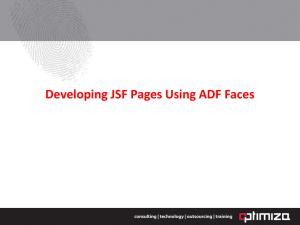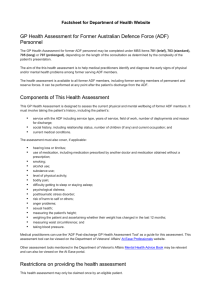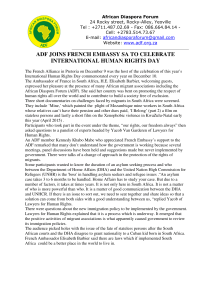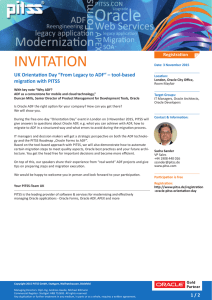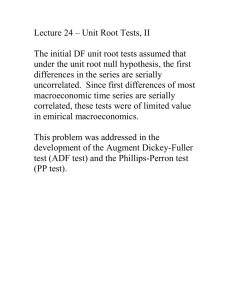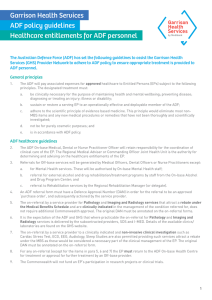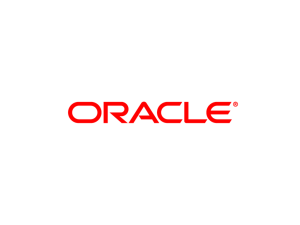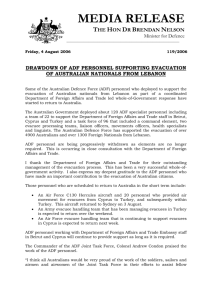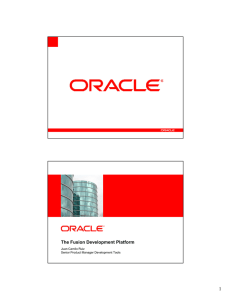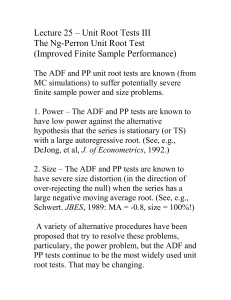Introduction to the Oracle Application Development Framework 11g
advertisement
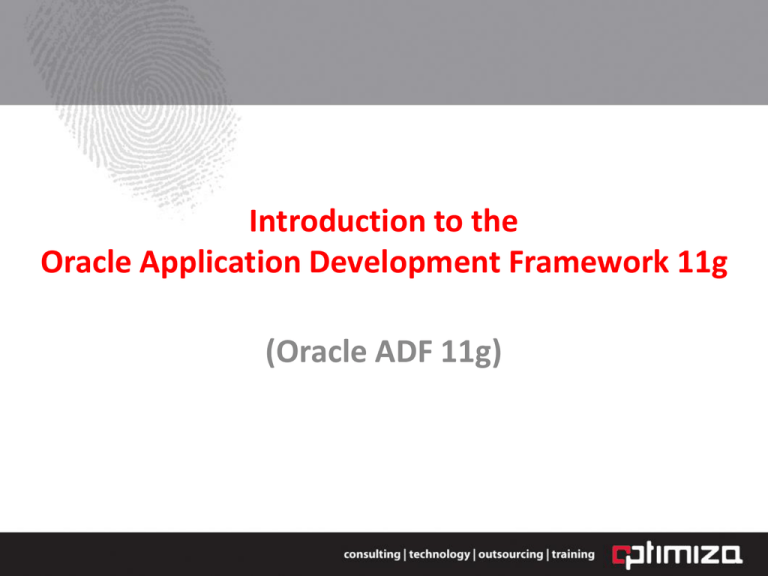
Introduction to the Oracle Application Development Framework 11g (Oracle ADF 11g) Features of Oracle ADF • Increase productivity & ease-of-use – Visual and declarative development – Implements best practices • Promote service oriented development – Re-usable business services – Composite applications development • Standards-based – Java EE, SOA • End-to-end coverage – MVC, security The ADF Philosophy Oracle ADF - The Bigger Picture ADF Faces ADF Faces Rich Client Components • Over 150 components • Ajax enabled • Pluggable look and feel • Accessibility & internationalization • The usual components plus: – Charts, gantt, pivot, calendars, coverflow • Built in advanced functionality: – Drag and drop framework – Dialog and pop-up framework – “Active Data” - Dashboards / push updates (comet) – Templating and declarative components Declarative Partial Page Rendering (PPR) Partial Page Rendering: • Enables redrawing only a portion of a page • Can be enabled declaratively or programmatically ADF Model ADF Model - Data Binding • ADF Model – JSR-227 Data Controls • Service Oriented Interface – Abstract implementation from clients – Loose coupling between services and application • More Reusability – Discover and share services • More Productivity – Drag and drop data binding – Declarative validation – Control hints Understanding Binding – UI to Data Control ADF Controller ADF Controller • An extension to the JSF page flow engine • Define flows of pages and methods • Diagram your process • Build reusable task flows – In other flows, inside other pages Task Flows - Reusable Page Flows ADF Business Components ADF Business Components A framework that simplifies developing Java EE business services for developers familiar with 4GL tools, declarative development, and relational databases. • Simplify data access • Simplify validation and business logic • Uses SQL based data views • Separate data views from business logic • Implement best practices • Easy customization Oracle ADF Architecture
